By Meera Satpathy
In India, the empowerment and education of adolescent girls are crucial for sustainable development and social justice, particularly in a society where patriarchal norms significantly influence the status and opportunities available to women and girls. This article underscores the importance of focusing on adolescent girls in India, supported by data and statistics, and applauds the efforts of organizations like Sukarya, leading the way in gender equality and empowerment.
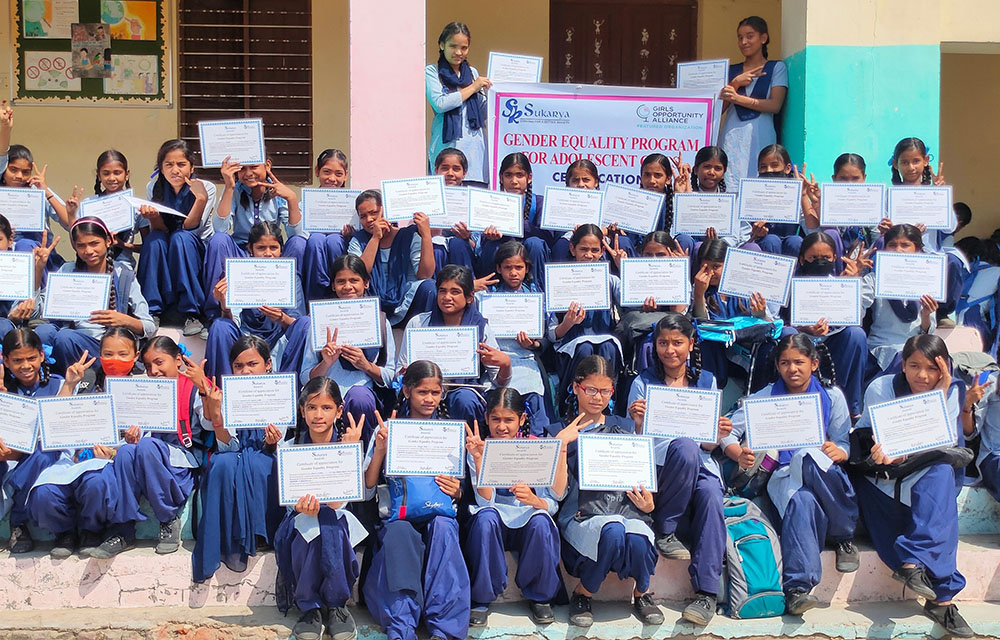
The Importance of Empowering Adolescent Girls
Adolescent girls are central to breaking cycles of poverty, boosting economic growth, and fostering sustainable development. Their education and health are foundational to empowerment, enabling them to delay marriage and childbirth, raise healthier children, and secure higher incomes. This not only benefits the girls themselves but also has a substantial positive impact on their families and communities.
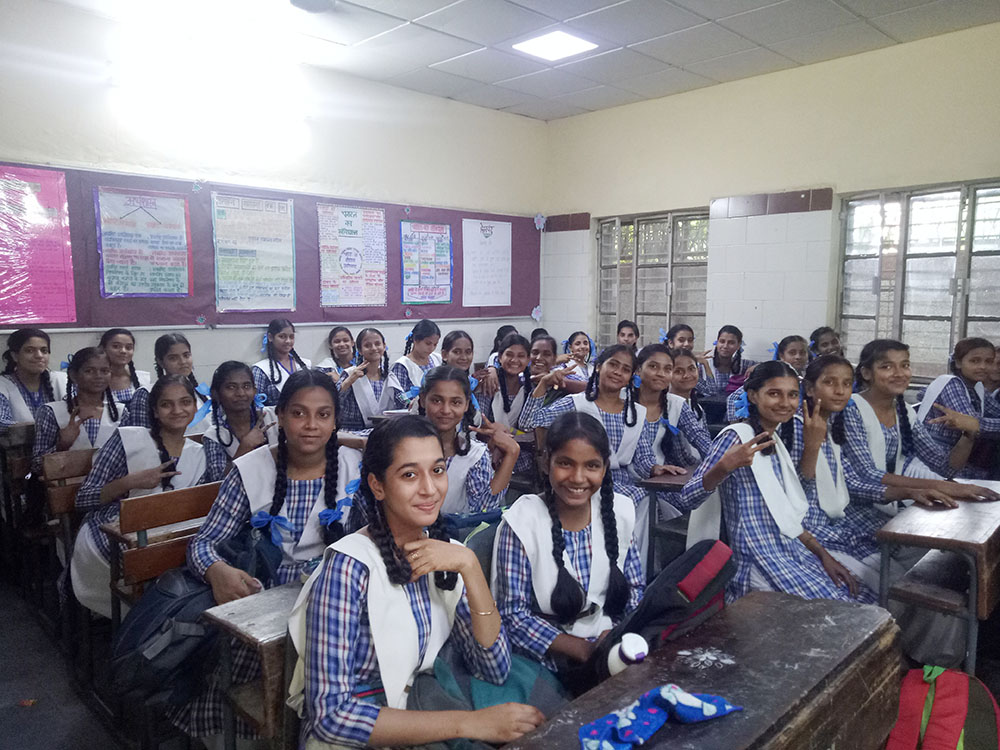
The Situation for Girls in India: Deep-rooted Challenges
In India, patriarchal norms create a challenging environment for adolescent girls, marked by gender disparities in education, health, and economic participation. These challenges are further highlighted by the World Economic Forum’s Global Gender Gap Report 2023, which ranks India 127th out of 146 countries. This ranking underscores the urgency of empowering adolescent girls and indicates significant gender disparities that need addressing. The challenges are exacerbated by:
- Child Marriage: India has one of the highest rates of child marriage worldwide, with UNICEF reporting that at least 1.5 million girls under the age of 18 are married off annually. This practice, deeply rooted in patriarchal traditions, limits girls’ access to education and exposes them to health risks associated with early pregnancy and childbirth.
- Education Disparities: Despite progress, girls’ education in India faces significant hurdles due to societal norms that prioritize boys’ education over girls’. The National Family Health Survey (NFHS-5, 2019-21) reveals that only 36.7% of women aged 15-49 years have completed ten or more years of schooling, compared to 45.3% of men, highlighting the gender gap in educational attainment.
- Health and Nutrition: Patriarchal values also detrimentally impact girls’ health, leading to nutritional deficiencies among many due to gender-based food distribution practices within families. According to the NFHS-5 report, 59.1% of women aged 15-49 are anemic, a condition that significantly affects women’s overall health and their capacity to lead productive lives.
- Economic Participation: The patriarchal structure significantly hinders women’s participation in the workforce. According to the Periodic Labour Force Survey (2019-20) by the National Statistical Office, the female labor force participation rate is only 22.8%, compared to 71.1% for men, further underscoring the gender disparity in economic engagement.
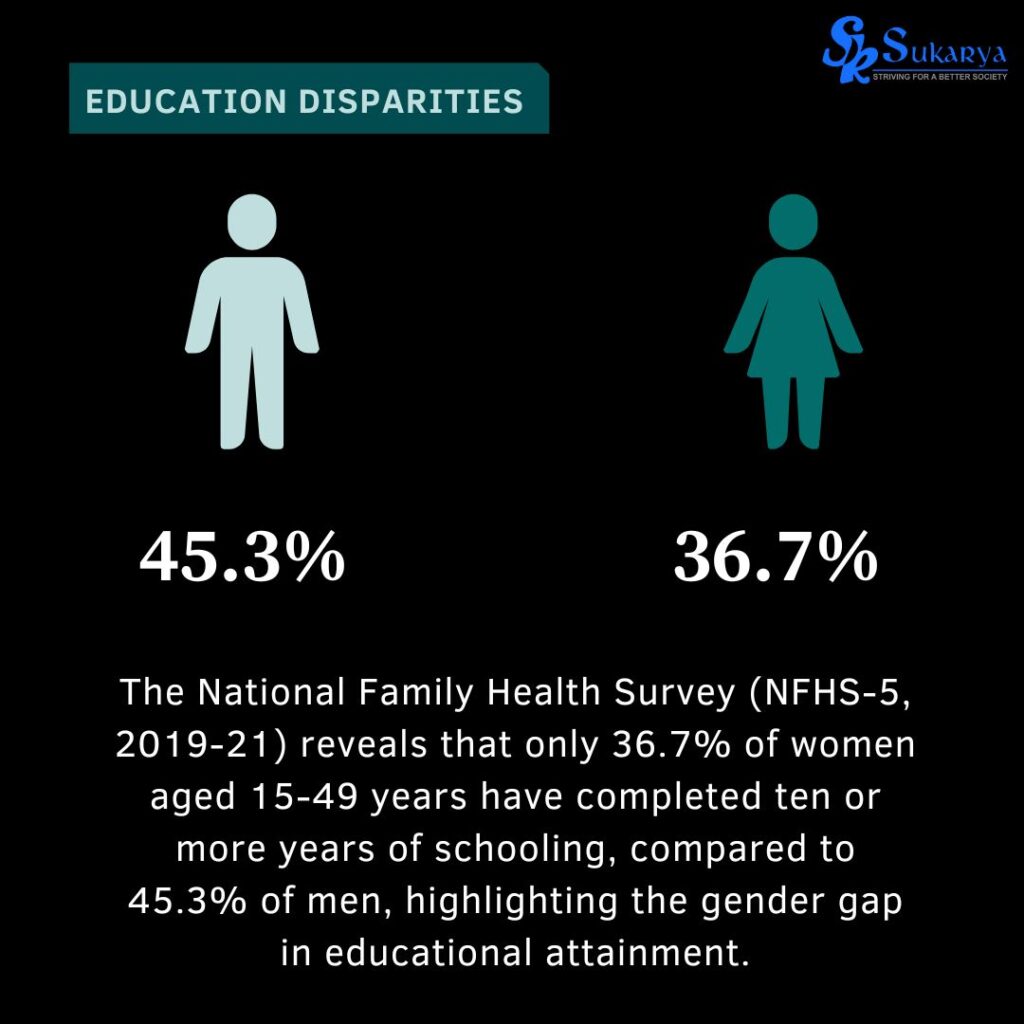
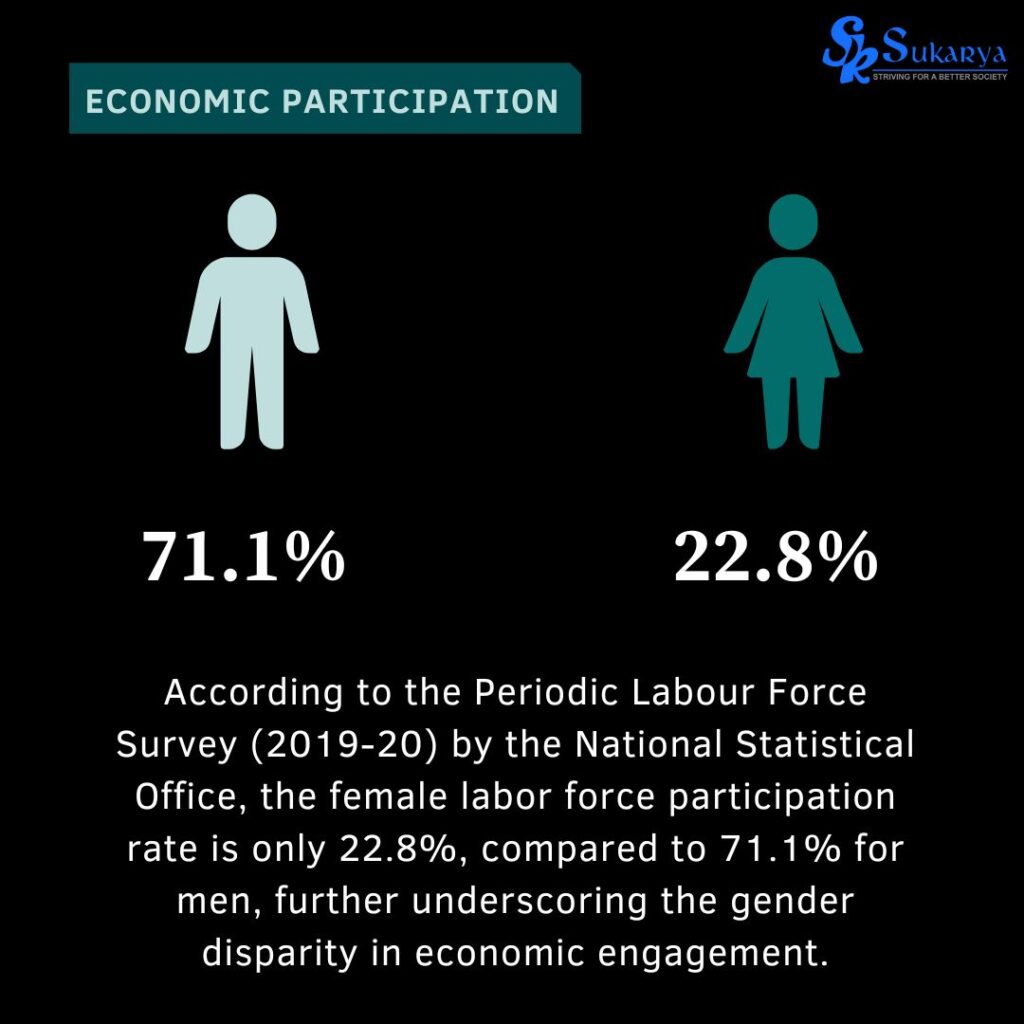

The Role of Sukarya in Empowering Adolescent Girls
Sukarya confronts these challenges head-on with its Gender Equality Program, designed to educate and empower adolescent girls in India. By focusing on areas such as reproductive and sexual health, rights awareness, and gender justice, Sukarya ensures that girls are empowered to become active participants in their narratives of gender equality.
Sukarya’s Gender Equality Program empowers girls and women to break free from the shackles of traditional gender roles, instilling in them the confidence to challenge the status quo and pursue their dreams. It champions equality, education, and awareness, fostering leaders who are unafraid to advocate for their rights and those of others.
We acknowledge that true education extends beyond academics; it involves nurturing the essential qualities, capacities, and attitudes required for a fulfilling and successful life. Understanding the individuality of each participant, our curriculum is meticulously tailored to meet the specific challenges they face. Comprehensive topics including adolescent health, menstrual hygiene, early pregnancies, forced marriages, sexual violence, nutrition, family life skills, and gender knowledge are addressed, ensuring a holistic educational experience.
On completion of the program, participants are awarded a certificate that signifies not just their educational attainment but also their dedication to personal growth and self-improvement.
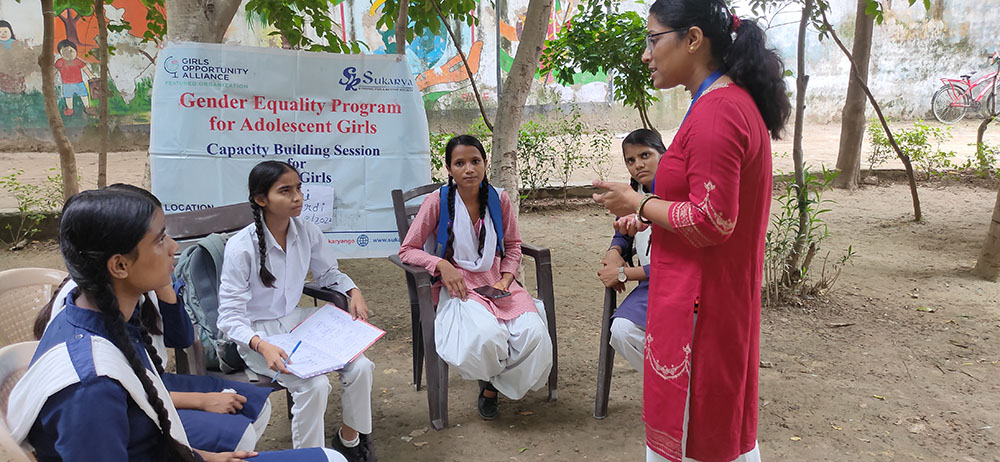
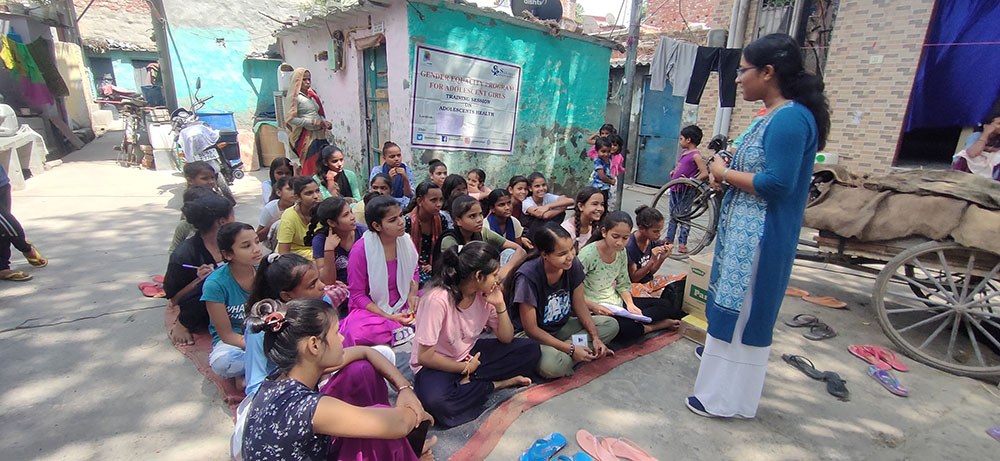
Education as Empowerment
Sukarya emphasizes education as a means of empowerment, providing girls with knowledge on health, hygiene, and rights. This broad-based education equips them to make informed decisions, preparing them for future challenges and opportunities.
Breaking Barriers and Building Futures
Through its work in communities across Delhi, Haryana, and Rajasthan, Sukarya has empowered over 15,000 adolescent girls since 2017, challenging societal perceptions and norms that hinder girls’ development and creating an environment where their education and empowerment are valued.
Leadership Development and Community Engagement
Sukarya’s program focuses on developing leadership among adolescent girls, creating a sustainable model of empowerment. By training “Lead Girls,” Sukarya ensures that these young leaders can continue to inspire and educate others, amplifying the impact of their programs.
A Call to Action
The empowerment of adolescent girls in India is critical, requiring concerted efforts from all sectors of society to dismantle the patriarchal barriers that limit their potential. Organizations like Sukarya are at the forefront, but broader support is needed to ensure every girl has the opportunity to learn, grow, and lead. Empowering girls goes beyond addressing gender disparities; it’s about building a more equitable and prosperous future for all.
